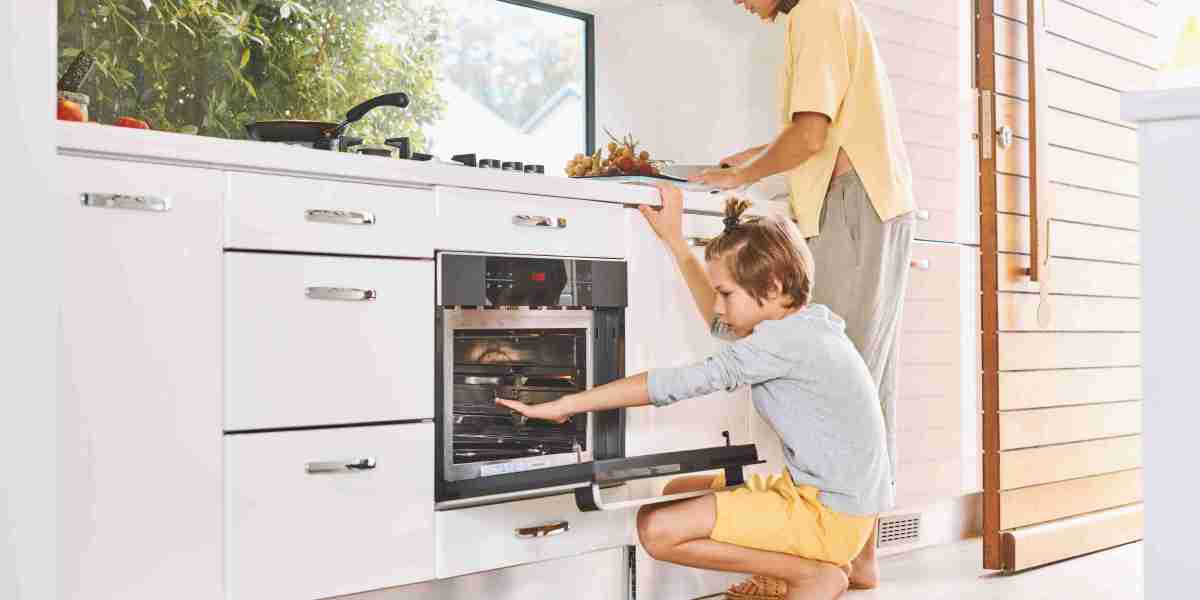The Integrated Cooker: A Comprehensive Guide to Modern Cooking Solutions
The evolution of kitchen appliances has actually changed food preparation and Cooking Solutions methods, making meal preparation more efficient and satisfying. Amongst these developments, the integrated cooker sticks out as a versatile and space-saving addition to contemporary kitchen areas. This post looks into the numerous elements of integrated cookers, including types, benefits, features, and a comparison with traditional cooking methods.
What is an Integrated Cooker?
An integrated cooker is a compact cooking home appliance that integrates multiple cooking functions into one unit. Typically built into kitchen cabinets, these cookers are created to conserve space while improving kitchen aesthetic appeals. They generally include a variety of performances, such as baking, barbecuing, steaming, and even pressure cooking.

Key Features of Integrated Cookers
- Multi-Functionality: Integrated cookers can perform various cooking jobs, getting rid of the need for multiple appliances.
- Space-Saving Design: These cookers fit flawlessly into kitchen units, making them perfect for contemporary homes with restricted space.
- Advanced Technology: Many integrated cookers come geared up with clever innovation, such as programmable settings, touch-screen controls, and connection options.
- Energy Efficiency: Built with contemporary products and style, they typically take in less energy compared to conventional cooking approaches.
Kinds Of Integrated Cookers
The marketplace provides different types of integrated cookers, each with its unique set of functions and functionalities. Here are the most common types:
| Type | Description | Example Use |
|---|---|---|
| Built-in Ovens | Ovens that are fitted into wall systems or cabinets | Baking bread, roasting meats |
| Induction Hobs | Cooktops that use electromagnetic energy to heat pots and pans | Rapidly boiling water, sautéing |
| Steam Ovens | Appliances that prepare food using steam for much healthier outcomes | Steaming vegetables, fish |
| Microwave Ovens | Integrated microwaves for quick heating and cooking | Reheating leftovers, making popcorn |
| Combination Ovens | A mix of conventional and steam cooking innovations | Baking while ensuring moisture retention |
Benefits of Using Integrated Cookers
Integrated cookers provide a host of benefits over conventional cooking tools. Below are some of the essential benefits:
- Space Efficiency: Ideal for compact kitchen areas, integrated cookers use vertical spaces efficiently.
- Streamlined Cooking Process: With several functions available, users can transition from one cooking technique to another with very little effort.
- Enhanced Aesthetics: Many integrated cookers can be found in streamlined styles that mix well with modern kitchen decoration.
- Enhanced Cooking Control: Programmable functions permit for accurate cooking, ensuring better meal results.
Integrated Cookers vs. Traditional Cooking Appliances
When thinking about meal preparation options, it is vital to weigh the advantages of integrated cookers against traditional cooking appliances. Below is a comparison chart:
| Feature | Integrated Cooker | Traditional Appliances |
|---|---|---|
| Area Efficiency | High | Lower |
| Multi-Functionality | Yes | No (needs multiple appliances) |
| Energy Consumption | Typically lower | Can be greater |
| Cooking Speed | Faster (especially with induction) | Varies |
| Design | Modern and smooth | Differs widely |
The integrated cooker is a forward-thinking device that fulfills the needs these days's busy lifestyle. Its multiplicity of functions, space-saving design, and streamlined aesthetic appeals make it a beneficial financial investment for any modern-day kitchen.
For those wanting to save time, space, and effort in meal preparation, integrated cookers provide an exceptional option that boosts the cooking experience while providing yummy, well-prepared meals.
Often Asked Questions (FAQs)
1. What is the typical rate of an integrated cooker?
The cost of integrated cookers can vary commonly, typically ranging from ₤ 500 to ₤ 3,000 depending upon features, brand, and size.
2. How much maintenance do integrated cookers need?
Upkeep often consists of routine cleaning of surface areas and examining for any software application updates if they include clever technology. It's suggested to follow the manufacturer's guidelines.
3. Can I change my existing oven with an integrated cooker?
Yes, integrated cookers can typically replace traditional ovens, however it is necessary to talk to a professional to make sure compatibility with your kitchen design.
4. Are integrated cookers difficult to install?
Installation can be simple for those with DIY experience. Nevertheless, working with a certified technician is recommended to make sure appropriate setup.
5. Who benefits most from using an integrated cooker?
Households, time-pressed individuals, and those residing in compact houses particularly benefit from the multi-functionality and space-saving style of integrated cookers.
In this age of benefit and efficiency, integrated cookers are redefining how we approach food preparation. Whether you are a knowledgeable chef or a cooking newbie, incorporating this effective device into your kitchen can considerably enhance your cooking experience.






